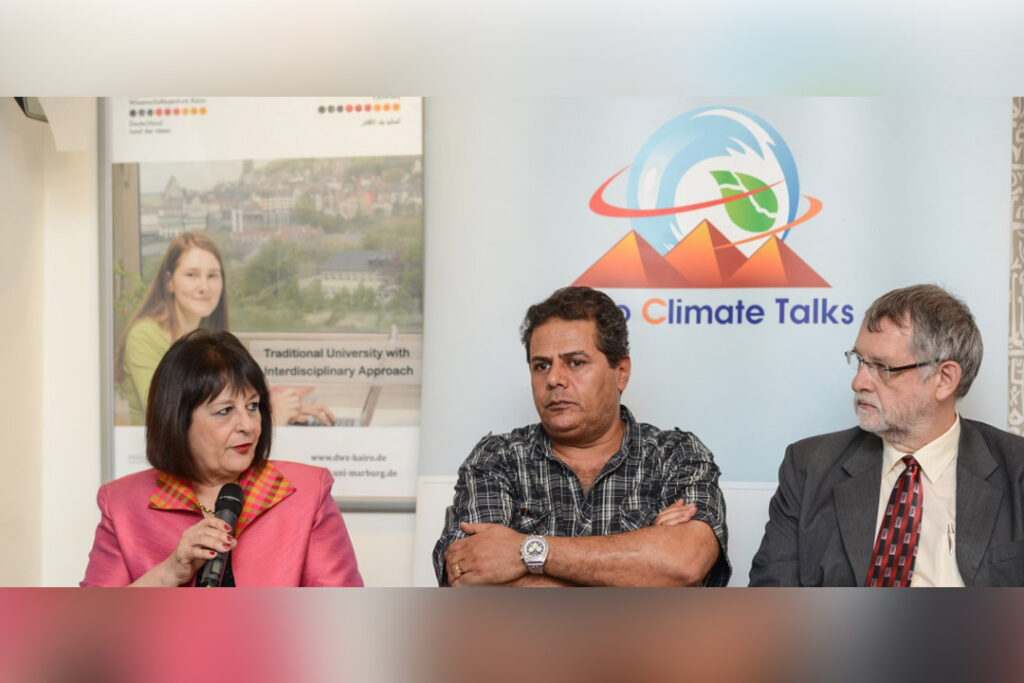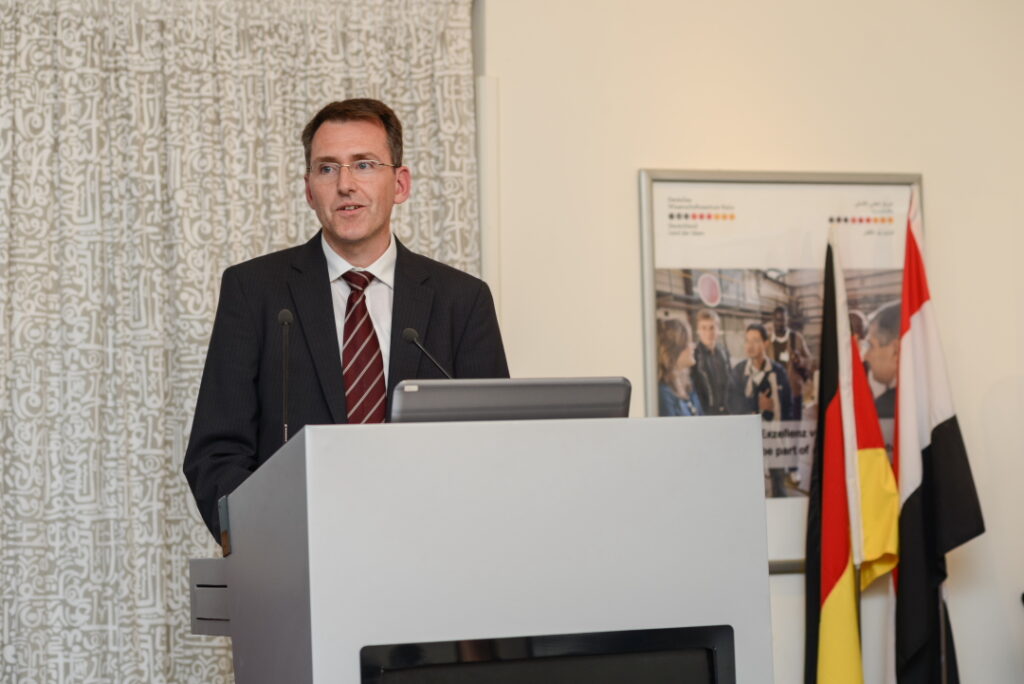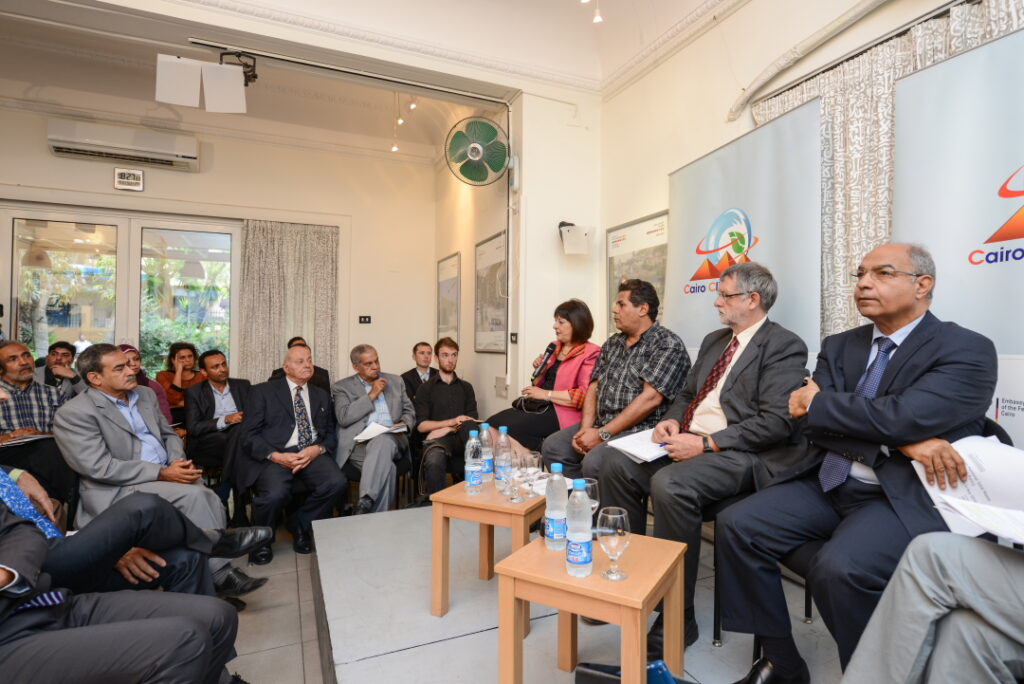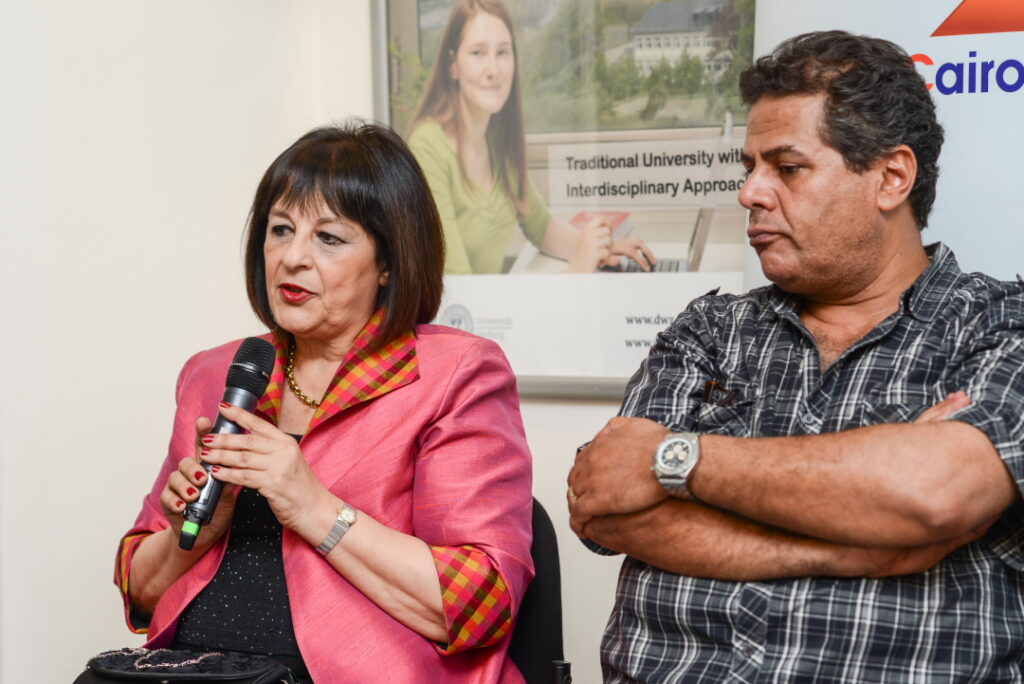20 Million Tons: Managing the Challenge of Solid Waste
2012
May 21st
At The German Science Center (DWZ), 11 Al-Saleh Ayoub Street, Zamalek, Cairo, Egypt
Egypt generates more than 20 million tons of municipal solid waste on an annual basis, or the equivalent of the largest Giza Pyramid every 40 days. Less than 65 percent of this waste is collected by the public or private sector, and a mere 20 percent is recycled or responsibly dealt with.
The negative impact on public health and the environment is significant. From refuse in the streets to blocked channels and polluted waterways, waste is visible everywhere. The cost of environmental degradation caused by inadequate waste management reaches 0.2 percent of GDP, according to a World Bank study, or more than LE360 million in today’s figures.
The 23rd Cairo Climate Talks “20 Million Tons: Managing the Challenge of Solid Waste” brought together public and private sector stakeholders to discuss viable local options for collecting, recycling and reusing solid waste during an experts’ workshop and public panel.
“Waste is a human concept, there’s no such thing as waste in nature,” said Mr. Kai Boeckmann, Chargé d’affairs at the German Embassy in Cairo, who opened the panel discussion. “If waste products are created by nature they quickly become raw products used by other processes so nature is very good in recycling. Humanity unfortunately isn’t, and as the Earth isn’t getting any bigger we can’t continue producing waste at this speed forever.”
Minister of State for Environmental Affairs Dr. Laila Iskander emphasized that dignity, safe working conditions and financial compensation should be afforded to garbage collectors, a sector that has long been informal, stigmatized and undervalued. “There was a myth among politicians that garbage collection services did not have to be paid for, that there were people who were willing to do it almost without cost,” the Minister said. “In fact there was a myth in government that we needed to sell garbage to the collector. Another myth was that anyone in that field had to be exposed to occupational hazards.”
Minister Iskander and fellow panelist Ezzat Naiem, director of the Manshiyet Nasr-based NGO Spirit of Youth Association, highlighted their programs that are formalizing small companies of collectors and helping them sign contracts with Giza Governorate to provide services. Programs in Dokki, Agouza and Imbaba are also educating residents and providing them with bags to dispose of organic and inorganic waste separately to facilitate recycling and create a more sanitary system.
Chemonics Egypt Chairman Dr. Ahmed Gaber agreed that governorate-specific solutions are necessary, as well as a complete cultural shift in the way the public thinks of trash. He also noted the lack of collection and recycling services in rural areas. His organization has done extensive studies on waste-to-energy conversion methods. Gaber said that while the most sophisticated systems may be too costly or not appropriate for Egypt at the moment, there is a huge range of processes to extract value from waste — from merely shredding and reselling recyclables to creating synthetic fibers to make clothes as they do in Asia — that could create new industry, income and jobs.
However, Naiem says, his NGO and others are still facing bureaucratic obstacles in legalizing recycling workshops, despite agreement from several ministries. The collection and recycling industry is responsible for employing nearly 1 million and creates an additional 2-3 million related jobs, he estimates, and could have a positive impact on the national economy if formalized and assisted.
“If people preserving the planet are an important part of this, why are we doing everything to keep them from getting to materials, why are they not entitled to investing in their own country?” asked Minister Iskander. “Why are we not giving them land and infrastructure? Why is it so easy to build a compound in the desert but it’s not easy for “the poor” to get land? We are not allowing these people to do something good for themselves and the country.”
Dr. Guenther Wehenpohl, Programme Coordinator of the Participatory Development Programme at the GIZ Egypt, said creating and enforcing strong laws with penalties to force producers and citizens to reduce waste and promote good disposal behaviors would be more effective than persuading them to protect the environment.
“The contribution of solid waste to climate change is estimated at 2.8 percent. Integrated Solid Waste Management can actually create a carbon positive balance,” said Dr. Wehenpohl, meaning refuse recycling, reuse and conversion to energy presents an opportunity not only to offset the CO2 emissions human waste produces but actually tip the balance the other way.
Meet our Panelists
Dr. Laila Iskander
Minister of State for Environmental Affairs
Ezzat Naiem
Minister Iskander and fellow panelist
Dr. Ahmed Gaber
Chemonics Egypt Chairman
Dr. Guenther Wehenpohl
Programme Coordinator of the Participatory Development Programme at the GIZ Egypt
Meet our Moderators
Mrs. Amira El Ahl
Mr. Ahmed Sedky
Venue / location
At The German Science Center (DWZ), 11 Al-Saleh Ayoub Street, Zamalek, Cairo, Egypt




Are you interested? Don’t miss out by registering to our events. We hope to see you there.
